
Find Help
More Items From Ergsy search
-

Are water companies responsible to maintain and update infrastructure in the UK?
Relevance: 100%
-
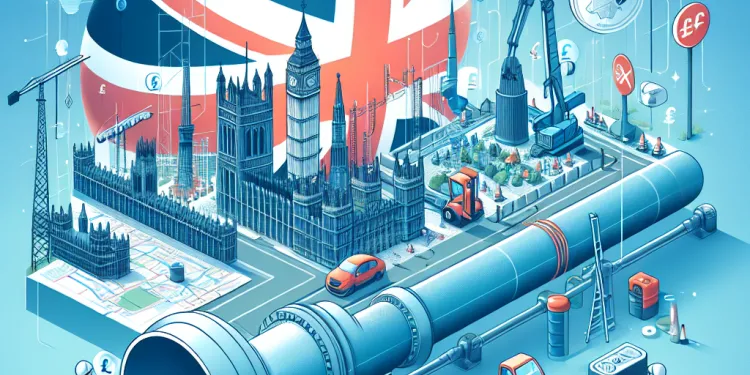
Do water companies have to update the infrastructure?
Relevance: 87%
-
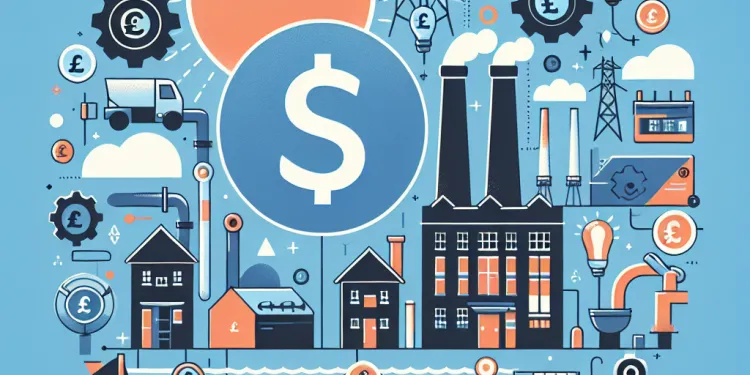
Are water companies responsible for maintaining water infrastructure in the UK?
Relevance: 85%
-

How do water companies fund infrastructure updates?
Relevance: 83%
-
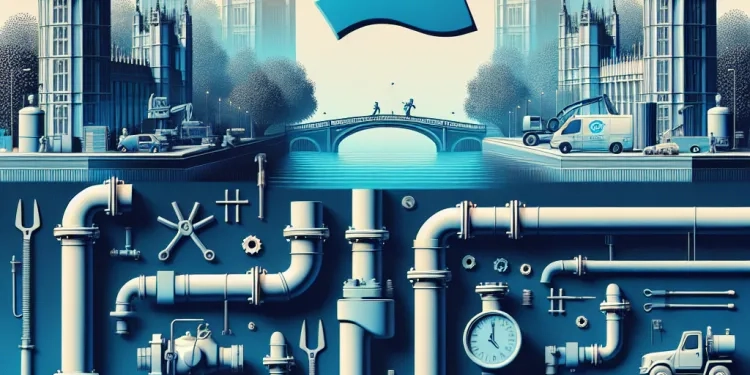
What challenges do water companies face in maintaining infrastructure?
Relevance: 77%
-
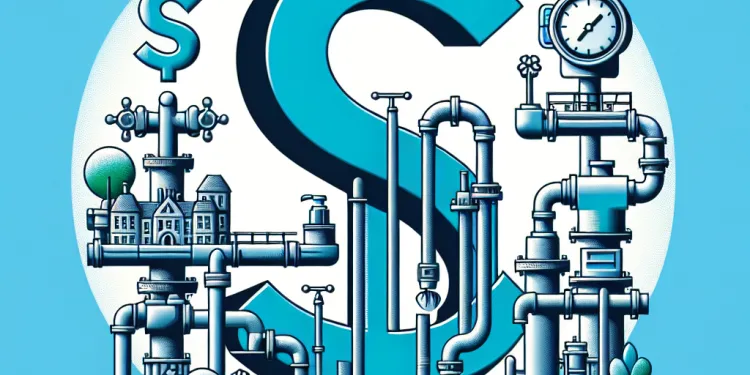
Are there penalties for not maintaining water infrastructure?
Relevance: 73%
-
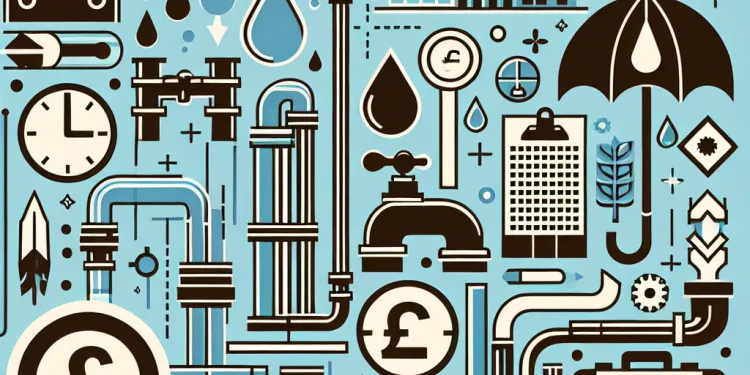
Do water companies have long-term infrastructure plans?
Relevance: 67%
-

How transparent are water companies regarding infrastructure improvements?
Relevance: 64%
-
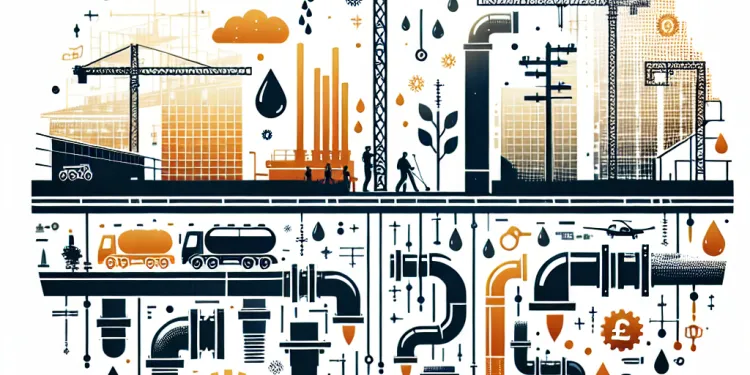
How are infrastructure priorities determined by water companies?
Relevance: 63%
-
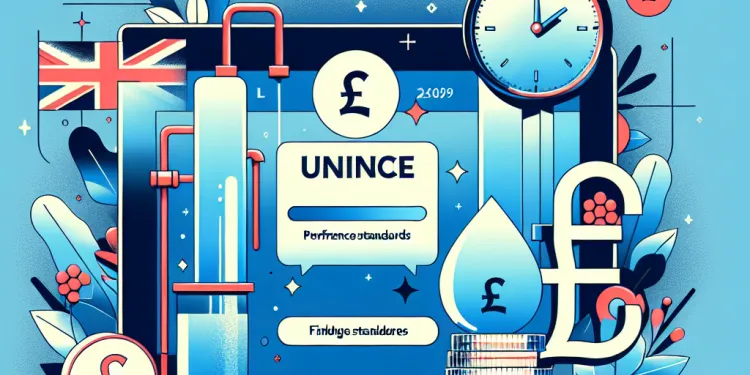
Where can customers find updates on their water company's performance standards?
Relevance: 54%
-
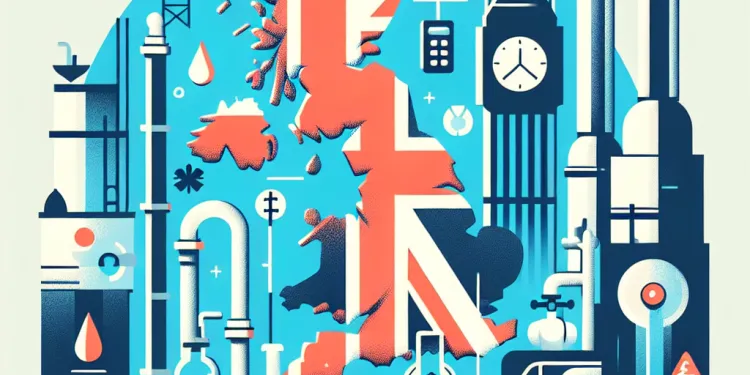
How old is the water infrastructure in the UK?
Relevance: 54%
-

What does water infrastructure maintenance involve?
Relevance: 50%
-
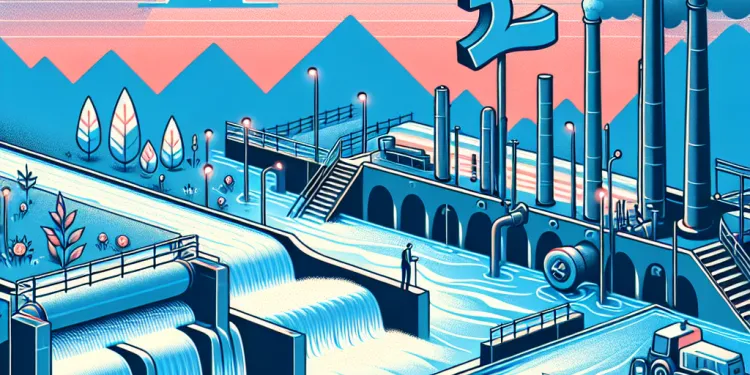
Can customers report issues with water infrastructure?
Relevance: 50%
-
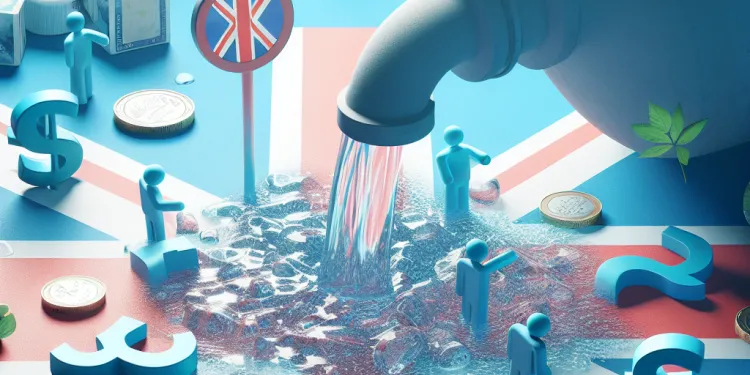
How much water is lost in the UK through poor infrastructure?
Relevance: 49%
-
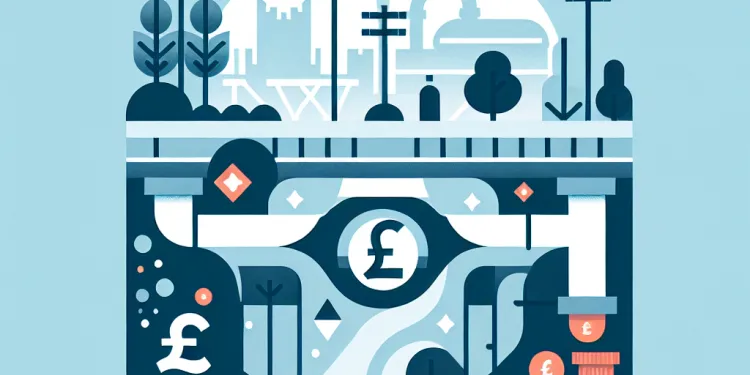
What role do water companies play in sewage pollution?
Relevance: 47%
-
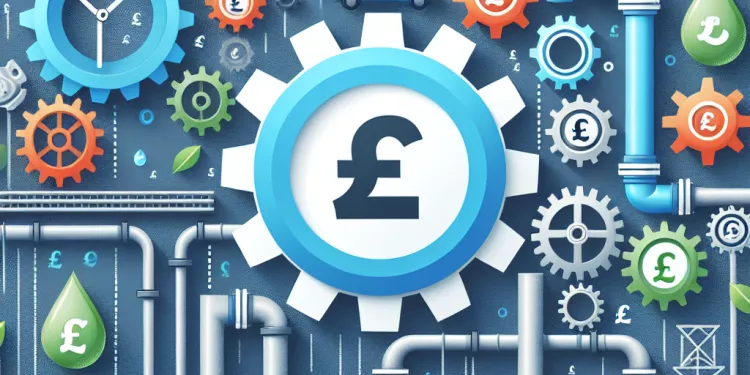
Are there initiatives to improve water efficiency in infrastructure?
Relevance: 46%
-

How are water companies held accountable for infrastructure maintenance?
Relevance: 45%
-
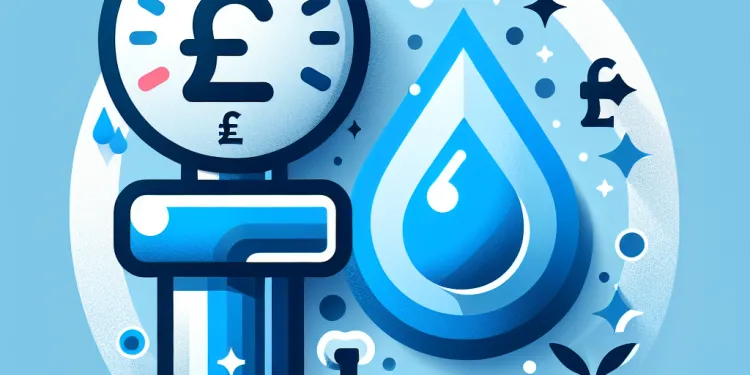
Which UK water companies are going to refund their customers for poor performance?
Relevance: 45%
-

How do water companies detect leaks?
Relevance: 45%
-
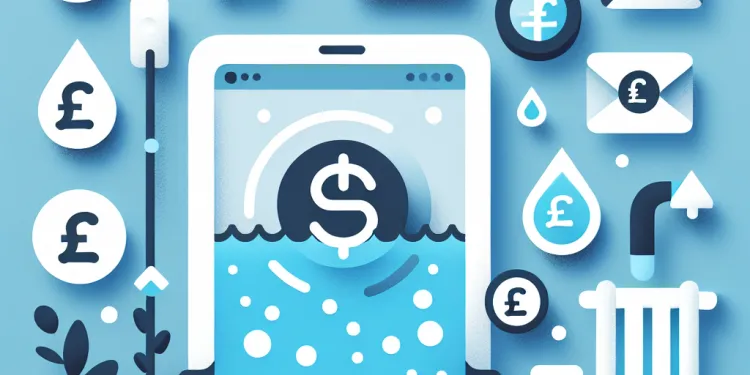
Are there penalties for water companies besides issuing refunds?
Relevance: 45%
-

How will refunds affect investments towards improving water infrastructure?
Relevance: 44%
-
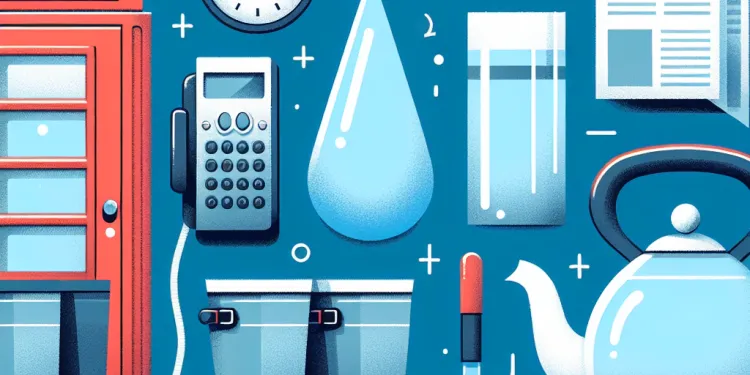
Which UK water companies are going to refund their customers?
Relevance: 43%
-
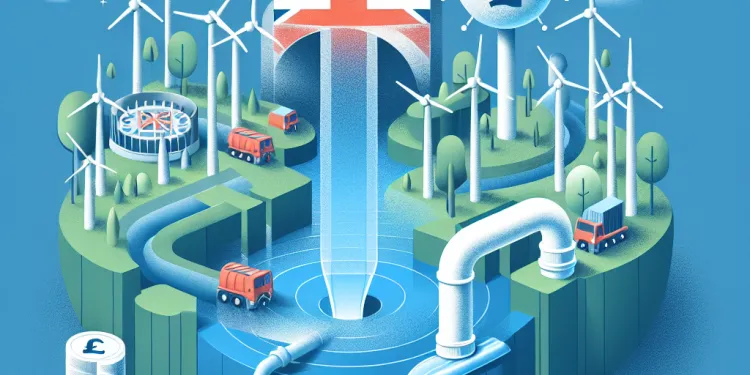
How does climate change affect water infrastructure maintenance?
Relevance: 42%
-

Who regulates the performance and compliance of UK water companies?
Relevance: 41%
-

Do these refunds mean water companies have increased their rates fraudulently?
Relevance: 41%
-

When will the refunds be issued by the UK water companies?
Relevance: 40%
-

How many UK water companies are involved in the refund process?
Relevance: 40%
-
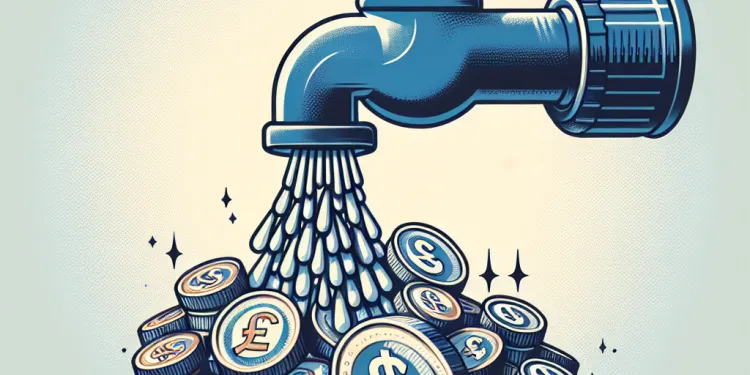
How much is being refunded in total by the UK water companies?
Relevance: 40%
-
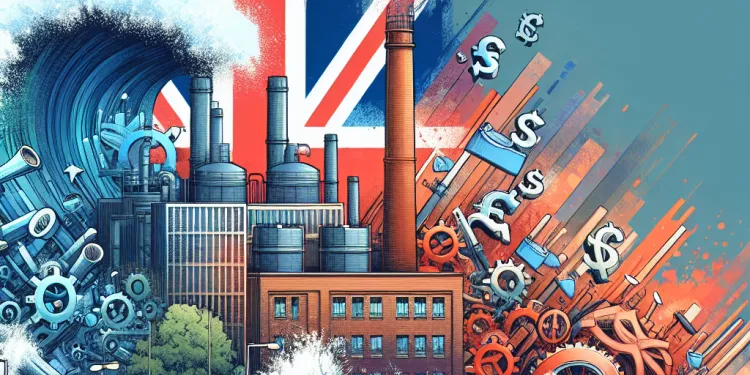
Can water companies enter my property to enforce a hosepipe ban?
Relevance: 39%
-
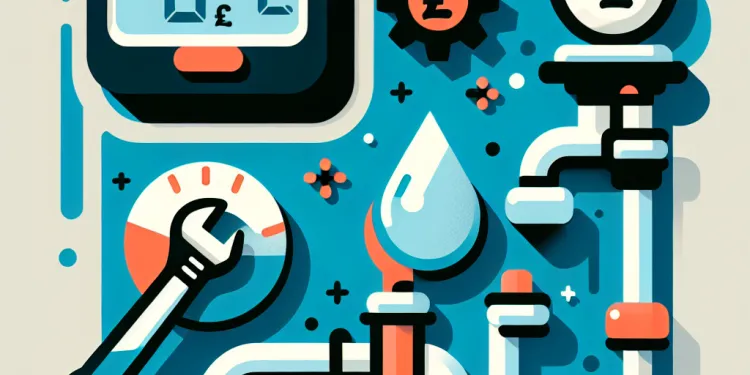
What measures are being taken to address water loss in the UK?
Relevance: 39%
-
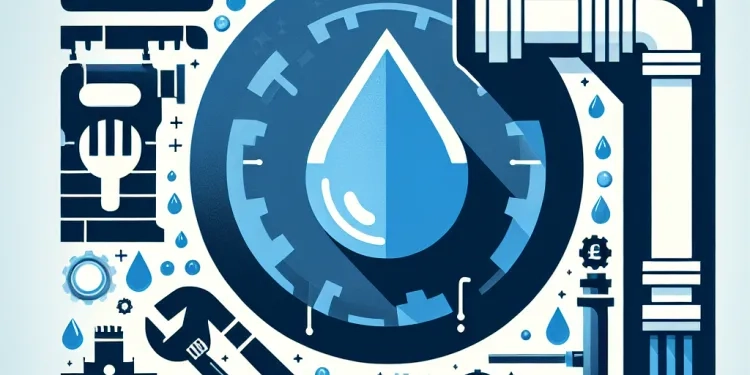
What are common signs of leaks in water infrastructure?
Relevance: 39%
-
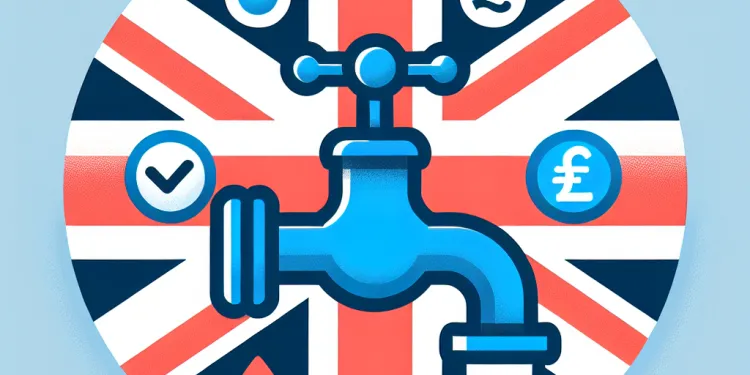
What criteria were used to determine the refunds for UK water companies?
Relevance: 38%
-
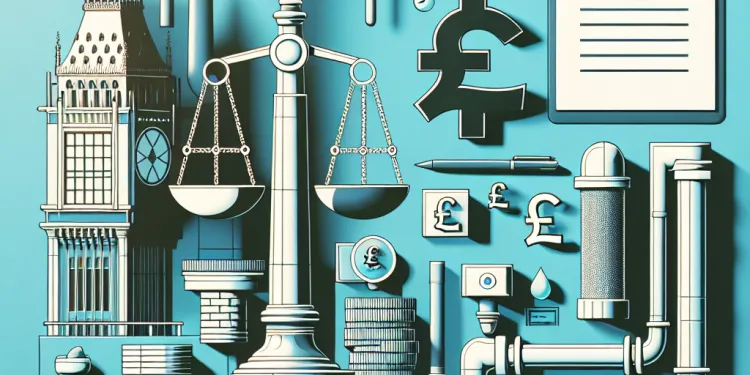
Which body is responsible for enforcing refunds by UK water companies?
Relevance: 38%
-
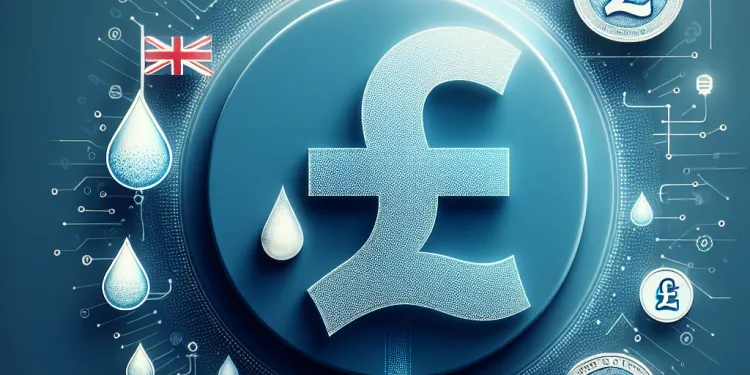
What are the financial implications of water loss for the UK?
Relevance: 38%
-
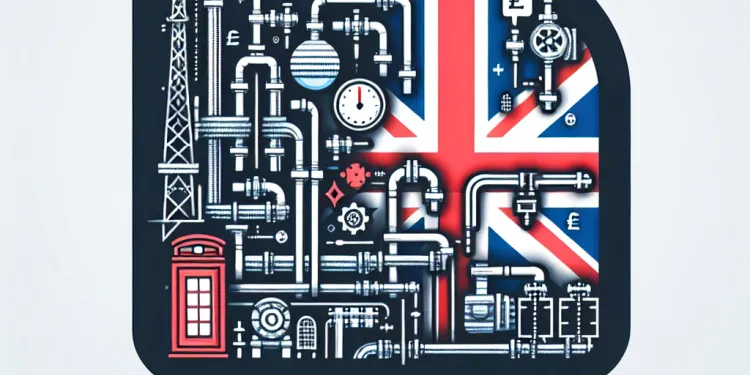
Are customers responsible for any part of the water infrastructure?
Relevance: 37%
-

Can customers appeal or discuss the refund amount with their water company?
Relevance: 36%
-

What can I do if the water company doesn’t respond to my claim?
Relevance: 36%
-

Are there any government initiatives to tackle water loss in the UK?
Relevance: 35%
-
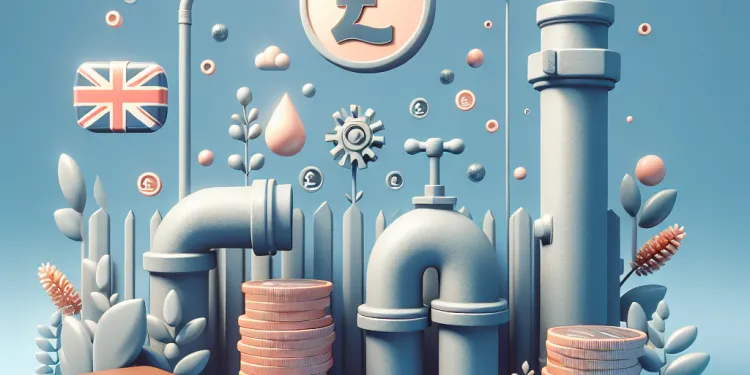
How can I claim money back from my water company?
Relevance: 34%
-

What is the first step to claim money back from my water company?
Relevance: 34%
Introduction
In the United Kingdom, water companies hold a critical role in providing essential services to millions of residents. These companies are responsible for ensuring the delivery of clean water and effective waste management. A significant part of their duty is to maintain and update the infrastructure that supports these services. But to what extent are these water companies responsible for maintaining and upgrading this infrastructure?
Legal Responsibilities
Water companies in the UK operate under strict regulatory frameworks. They are heavily regulated by Ofwat, the Water Services Regulation Authority. Ofwat’s role is to ensure that water companies carry out their responsibilities effectively and that consumers receive a consistent service. By law, these companies must ensure the infrastructure is not only maintained but also upgraded to meet future demands and improve resilience against environmental changes.
Investment in Infrastructure
One of the key responsibilities of water companies is to invest in infrastructure. This includes both maintenance of existing systems and development of new technologies and facilities. Water companies are required to submit plans detailing how they will invest in and maintain their infrastructure, and these plans are scrutinized by Ofwat. The aim is to ensure that the infrastructure can handle increasing population pressures and the impacts of climate change.
Challenges in Updating Infrastructure
Despite the clear regulatory requirements, water companies face numerous challenges in updating infrastructure. Aging pipes, limited access to certain areas, and financial constraints can hinder maintenance efforts. Moreover, balancing the need for investment with keeping water bills affordable for consumers is a continuous challenge. The balance between maintaining current systems and investing in future-proofing infrastructure requires strategic planning and significant resources.
Public Accountability
The accountability of water companies extends beyond regulatory bodies to the public. Consumers expect reliable service, but they also expect modernization efforts that consider environmental sustainability and innovation. Water companies must engage with the public to explain their plans and justify any changes to billing. Transparency and communication are essential in maintaining public trust.
Conclusion
In the UK, water companies have a significant responsibility to maintain and update infrastructure. They operate under a regulatory framework that demands investment in both current systems and innovative future solutions. While challenges exist, particularly in funding and logistics, the expectation is clear: water companies must ensure their infrastructure not only meets current needs but is also prepared for emerging demands. Their role is pivotal in securing reliable and sustainable water services for future generations.
Introduction
In the UK, water companies have an important job. They make sure people get clean water and that waste is handled properly. They have to keep the systems that do this in good shape. They also need to make them better over time. But how much of this work is their job?
Legal Responsibilities
UK water companies have to follow strict rules. Ofwat is the group that makes sure they do a good job. By law, water companies must keep their systems in good shape and improve them. This is to make sure things work well now and in the future, even if things like the weather change.
Investment in Infrastructure
Water companies must spend money to take care of their systems. They need to fix what's there and also use new technology. They have to tell Ofwat their plans for this. By doing so, they make sure they can serve more people and handle things like climate change.
Challenges in Updating Infrastructure
Water companies have problems updating their systems. Old pipes, hard-to-reach places, and money issues make it tough. They also need to keep water bills low for people. They have to balance fixing old systems and planning for the future. This takes careful planning and money.
Public Accountability
Water companies have to answer not just to Ofwat, but also to the public. People want good service and also want to see things improve in an environmentally friendly way. Companies need to talk to people about their plans and why their bills might change. Being open and clear helps keep people’s trust.
Conclusion
In the UK, water companies have a big job. They need to keep and improve systems so that they work now and in the future. Even though they face challenges, they have to ensure things run smoothly for everyone. These companies play an important part in giving us good water services today and in the future.
Frequently Asked Questions
Are water companies responsible for maintaining water infrastructure in the UK?
Yes, water companies in the UK are responsible for maintaining the water infrastructure, which includes pipes, treatment plants, and reservoirs.
What does water infrastructure maintenance involve?
It involves regular inspection, repair, and replacement of pipelines, treatment plant operations, and ensuring the efficient delivery of water services.
Do water companies have to update the infrastructure?
Yes, water companies are required to update and upgrade infrastructure to meet regulatory standards and accommodate growing demand.
Who regulates water companies in the UK?
The Water Services Regulation Authority, known as Ofwat, is responsible for regulating water companies in England and Wales.
How are water companies held accountable for infrastructure maintenance?
Ofwat sets performance standards and can impose penalties on companies that fail to meet them. Companies must also report on their activities and improvements.
Are customers responsible for any part of the water infrastructure?
Customers are typically responsible for services from the property boundary inward, such as plumbing within the home.
Why is infrastructure maintenance important?
Proper maintenance ensures reliable water supply, prevents leaks, and minimizes environmental impacts and service disruptions.
How do water companies fund infrastructure updates?
Infrastructure updates are funded through customer bills, investments, and financial frameworks approved by Ofwat.
What happens if a water main bursts?
Water companies are responsible for repairing burst mains and restoring services as quickly as possible.
Are there penalties for not maintaining water infrastructure?
Yes, Ofwat can impose fines or other corrective actions on companies failing to meet infrastructure maintenance obligations.
Do water companies have long-term infrastructure plans?
Yes, companies are required to develop long-term plans for maintaining and updating infrastructure, known as asset management plans.
How often is the infrastructure updated?
Updates occur based on need, regulatory requirements, technology advancements, and strategic planning cycles.
What role does technology play in infrastructure maintenance?
Technology helps monitor system performance, detect leaks, and prioritize maintenance activities efficiently.
How does climate change affect water infrastructure maintenance?
Climate change stresses infrastructure, such as increased flooding or drought, necessitating adaptation and resilience in maintenance and updates.
Are there initiatives to improve water efficiency in infrastructure?
Yes, companies are encouraged to minimize water losses and enhance efficiency through modern technologies and better network management.
Can customers report issues with water infrastructure?
Yes, customers should report leaks or service disruptions to their water company for resolution.
How transparent are water companies regarding infrastructure improvements?
Companies are required to communicate plans and progress on infrastructure improvements to both regulators and customers.
Is there a difference in responsibility between public and private land?
Yes, while companies maintain pipes under public land, property owners are responsible for those on private land after the boundary.
How are infrastructure priorities determined by water companies?
Priorities are based on risk assessments, customer feedback, regulatory requirements, and strategic needs.
What challenges do water companies face in maintaining infrastructure?
Challenges include aging infrastructure, resource constraints, regulatory demands, and environmental pressures.
Do water companies in the UK have to look after water pipes and systems?
Yes, in the UK, water companies look after the things that bring us water. This means they take care of pipes, places that clean water, and big tanks that store water.
What is looking after water pipes and pumps about?
Looking after water pipes and pumps means making sure they work well. Here is what it involves:
- Checking: Look at the pipes and pumps to see if they are okay.
- Fixing: If something is broken, fix it right away.
- Cleaning: Keep things clean so they work better.
- Testing: Try them out to make sure they are working right.
Using pictures or videos can help you understand better.
It means checking pipes often, fixing them when they're broken, and changing them if needed. It also means making sure the place that cleans water works well and that water gets to people quickly and safely.
Do water companies need to fix pipes and systems?
Yes, water companies must make their pipes and systems better. This helps them follow the rules and give water to more people as needed.
Who makes the rules for water companies in the UK?
In the UK, there are groups that make sure water companies do their job right. These groups make rules and check if the companies follow them. Here are the main ones:
- Ofwat: They make sure water companies provide good service and treat customers fairly.
- Environment Agency: They look after rivers and seas so water stays clean and safe.
- Drinking Water Inspectorate: They make sure the water you drink is safe.
If you want help understanding, you can:
- Ask someone to read with you.
- Use a dictionary for hard words.
- Listen to the text with a text-to-speech tool.
Ofwat is a group that makes sure water companies in England and Wales do a good job.
Who makes sure water companies fix and take care of pipes and buildings?
Ofwat sets rules for how companies must do their job. If companies do not follow these rules, they can get into trouble. Companies must also tell everyone what they do and how they get better.
Do customers have to take care of any water pipes or equipment?
People usually have to take care of things like plumbing inside their home, starting from where their property begins.
Why is it important to take care of roads and buildings?
Taking care of roads and buildings helps keep everyone safe. Fixing roads means fewer accidents. Keeping buildings in good shape makes them strong and safe to use.
Good roads and buildings help people get where they need to go. They make it easier for people to visit friends, go to school, or work.
We can use pictures to see what needs fixing. Calendars can be helpful to remember when checks and repairs need to be done.
Taking good care of water supplies is important. It helps make sure we always have water when we need it. It also stops leaks and protects the environment. This way, we do not have problems with our water services.
How do water companies pay for improvements?
Water companies need to fix and improve things like pipes and treatment plants. Here's how they pay for this: 1. **Customer Bills:** People pay money for their water service. This money helps water companies. 2. **Loans:** Water companies can borrow money from banks to pay for improvements. 3. **Investments:** Sometimes, people or other companies put money into water companies to help them grow. To understand better, you can: - **Ask a friend or family member to explain.** - **Use online videos with clear explanations.** - **Read simple books about how companies work.**Money for fixing and improving things comes from customer bills, investments, and plans that Ofwat says are okay.
What happens if a big water pipe breaks?
A big water pipe is called a water main. When it breaks, water comes out fast. Streets can get wet and slippery.
Here is what you can do:
- Stay away from the water. It can be dangerous.
- Tell an adult or call someone for help.
- If you're at home, ask an adult to turn off the water.
You can use a picture book to learn more about water pipes. Apps that read stories out loud can also help.
Water companies fix broken pipes. They work fast to make water come back.
What happens if we don't take care of water pipes and systems?
If we don't take care of water pipes and systems, we might face problems.
Here are some things that can help us:
- Use pictures to understand better.
- Listen to someone explain it.
Yes, Ofwat can give fines or other punishments to companies that do not take care of their infrastructure properly.
Do water companies have long-term infrastructure plans?
Do water companies have big ideas for the future?
Water companies plan how they will take care of pipes, pumps, and places where they clean water. It is important they think ahead to make sure water is clean and safe. Planning helps them fix things before they break.
Tools that might help you understand more:
- Pictures or videos about water companies
- Talking to someone who knows about water
- Reading simple books about water and pipes
Yes, companies need to make long-term plans. These plans help them take care of their buildings, roads, and other important things. These plans are called asset management plans.
How often do we make the buildings and roads better?
We fix and improve buildings, roads, and other important things often to keep them safe and working well.
The people in charge check them regularly to decide when they need fixing. It can be different each time.
Helpful Tips:
- Use pictures to help understand what buildings and roads are.
- Ask a grown-up to explain if you have questions.
Updates happen when they are needed. This can be because of rules, new technology, or plans for the future.
How does technology help take care of important things like roads and bridges?
Technology helps us fix and look after things like roads, bridges, and buildings.
Here are some ways technology helps:
- Machines can find broken parts quickly.
- Computers tell us when to fix things.
- Robots can help fix things safely.
- People use tools to check if things are working well.
You can use pictures and videos to understand better.
Ask someone or use voice apps if reading is hard.
Technology helps us check how things are working, find leaks, and decide what needs fixing first.
How does climate change affect taking care of water systems?
Climate change means the weather is changing. This can make it hard to take care of water systems like pipes and dams. When it rains a lot or there is a big storm, this can cause problems. Pipes might break, or too much water can cause flooding.
To help, people can use tools like simple checklists to make sure everything is working right. Drawing pictures of the water systems can also help people understand better.
Climate change can cause more floods and droughts. This affects roads, bridges, and buildings.
We need to make sure we fix and improve these things to handle the changes. It's important to keep everything safe and strong for the future.
Here are some things that can help:
- Use simple checklists to see what needs fixing.
- Take pictures to keep track of changes over time.
- Ask for help from experts who know about building strong structures.
Are there projects to use water better in buildings and roads?
Some places have plans to save water. They try to use less water in buildings and on roads. This helps everyone have enough water.
Tools to help understand:
- Pictures or drawings of water-saving projects.
- Short videos about how we can use less water.
- Simple charts that show water use before and after saving plans.
Yes, companies should save water and work better. They can use new machines and manage their systems well to do this.
Can people tell us if there is a problem with the water pipes?
If you see a problem with water pipes, you can tell us about it. This helps us fix the problem faster.
If you need help, you can ask someone to help you write down the problem.
You can also use pictures to show us what's wrong.
If you see a water leak or your water is not working, you should tell your water company. They will help fix it.
Do water companies tell us clearly about their improvements?
Companies need to tell people about their plans to make things better. They need to tell the people who check on them and their customers.
Is taking care of public land different from taking care of private land?
Yes, companies take care of pipes under public land, but if you own land, you take care of the pipes on your land.
How do water companies decide what to fix or build first?
We decide what is most important by looking at risks, listening to customers, following rules, and planning for the future.
What problems do water companies have with keeping pipes and systems working?
Water companies have to keep the pipes and systems in good shape. Here are some problems they face:
- Old Pipes: Many pipes are very old and need fixing.
- Leaks: Pipes can get holes and water leaks out.
- Clogs: Sometimes things get stuck in pipes and block them.
- Weather: Bad weather, like storms, can damage pipes.
- Money: It costs a lot of money to fix and replace pipes.
To help understand these problems, you can:
- Look at pictures or videos about how water systems work.
- Ask someone to explain it to you in simple words.
- Use tools like audiobooks to listen to information.
Problems include old buildings and equipment, not enough resources, lots of rules to follow, and pressure to help the environment.
Useful Links
This website offers general information and is not a substitute for professional advice.
Always seek guidance from qualified professionals.
If you have any medical concerns or need urgent help, contact a healthcare professional or emergency services immediately.
Some of this content was generated with AI assistance. We’ve done our best to keep it accurate, helpful, and human-friendly.
- Ergsy carfully checks the information in the videos we provide here.
- Videos shown by Youtube after a video has completed, have NOT been reviewed by ERGSY.
- To view, click the arrow in centre of video.
- Most of the videos you find here will have subtitles and/or closed captions available.
- You may need to turn these on, and choose your preferred language.
- Go to the video you'd like to watch.
- If closed captions (CC) are available, settings will be visible on the bottom right of the video player.
- To turn on Captions, click settings .
- To turn off Captions, click settings again.
More Items From Ergsy search
-

Are water companies responsible to maintain and update infrastructure in the UK?
Relevance: 100%
-

Do water companies have to update the infrastructure?
Relevance: 87%
-

Are water companies responsible for maintaining water infrastructure in the UK?
Relevance: 85%
-

How do water companies fund infrastructure updates?
Relevance: 83%
-

What challenges do water companies face in maintaining infrastructure?
Relevance: 77%
-

Are there penalties for not maintaining water infrastructure?
Relevance: 73%
-

Do water companies have long-term infrastructure plans?
Relevance: 67%
-

How transparent are water companies regarding infrastructure improvements?
Relevance: 64%
-

How are infrastructure priorities determined by water companies?
Relevance: 63%
-

Where can customers find updates on their water company's performance standards?
Relevance: 54%
-

How old is the water infrastructure in the UK?
Relevance: 54%
-

What does water infrastructure maintenance involve?
Relevance: 50%
-

Can customers report issues with water infrastructure?
Relevance: 50%
-

How much water is lost in the UK through poor infrastructure?
Relevance: 49%
-

What role do water companies play in sewage pollution?
Relevance: 47%
-

Are there initiatives to improve water efficiency in infrastructure?
Relevance: 46%
-

How are water companies held accountable for infrastructure maintenance?
Relevance: 45%
-

Which UK water companies are going to refund their customers for poor performance?
Relevance: 45%
-

How do water companies detect leaks?
Relevance: 45%
-

Are there penalties for water companies besides issuing refunds?
Relevance: 45%
-

How will refunds affect investments towards improving water infrastructure?
Relevance: 44%
-

Which UK water companies are going to refund their customers?
Relevance: 43%
-

How does climate change affect water infrastructure maintenance?
Relevance: 42%
-

Who regulates the performance and compliance of UK water companies?
Relevance: 41%
-

Do these refunds mean water companies have increased their rates fraudulently?
Relevance: 41%
-

When will the refunds be issued by the UK water companies?
Relevance: 40%
-

How many UK water companies are involved in the refund process?
Relevance: 40%
-

How much is being refunded in total by the UK water companies?
Relevance: 40%
-

Can water companies enter my property to enforce a hosepipe ban?
Relevance: 39%
-

What measures are being taken to address water loss in the UK?
Relevance: 39%
-

What are common signs of leaks in water infrastructure?
Relevance: 39%
-

What criteria were used to determine the refunds for UK water companies?
Relevance: 38%
-

Which body is responsible for enforcing refunds by UK water companies?
Relevance: 38%
-

What are the financial implications of water loss for the UK?
Relevance: 38%
-

Are customers responsible for any part of the water infrastructure?
Relevance: 37%
-

Can customers appeal or discuss the refund amount with their water company?
Relevance: 36%
-

What can I do if the water company doesn’t respond to my claim?
Relevance: 36%
-

Are there any government initiatives to tackle water loss in the UK?
Relevance: 35%
-

How can I claim money back from my water company?
Relevance: 34%
-

What is the first step to claim money back from my water company?
Relevance: 34%


